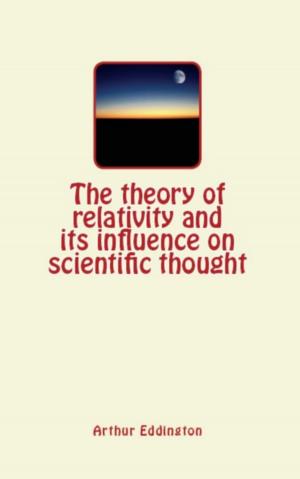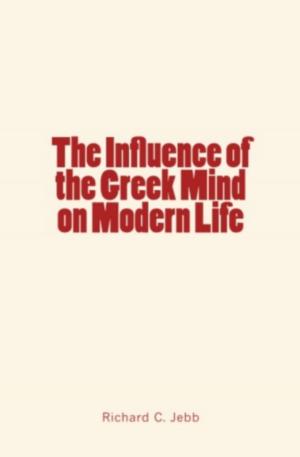NATURAL HISTORY OF MAN
The Unity of Human Species, Migrations of Men and Development of Human Characters
Nonfiction, History| Author: | Armand de Quatrefages | ISBN: | 9782366595994 |
| Publisher: | Literature and Knowledge Publishing | Publication: | April 12, 2018 |
| Imprint: | Literature and Knowledge Publishing | Language: | English |
| Author: | Armand de Quatrefages |
| ISBN: | 9782366595994 |
| Publisher: | Literature and Knowledge Publishing |
| Publication: | April 12, 2018 |
| Imprint: | Literature and Knowledge Publishing |
| Language: | English |
This book presents the natural history of man, with illustrations. - What is man? - The Antiquity of Man. - The Migrations of Men. - The Development of Physical and Intellectual Characters of the Human Races. "Each of my fellow laborers in science select the subject which habitually occupies them. Some tell you of the heavens, the earth, the waters; from others you get the history of vegetables and animals. As I am Professor of the Natural History of Man at the Museum, I ask myself why I should not speak to you of man. There is evidently as much interest for us in our own species as in the history of animals, even of those most useful to us. Indeed, at this time, the mind is drawn toward this study by an irresistible movement. Formerly, Anthropology, the natural history of man, was not represented in philosophical bodies, nor by the periodical press. Now, in Paris alone there are two Philosophical Societies occupied exclusively with this science, and two large publications equally devoted to it. At the Museum the teaching of anthropology is older. It is there aided by a collection which is still the best in the world. I do not hesitate to say that it is one of the glories of France to have given by these methods an example to the entire world—an example followed to-day in America as well as in Europe. And I wish to make you take a part in this movement, by giving you some serious notion of the ensemble of the human family. This, gentlemen, is much more difficult for me than for my associates. In all these lectures we are to speak of only a single being, man. Consequently, there will be an intimate union between them, so much so that any person who should miss a lecture would find difficulty in thoroughly understanding those that follow. To remove this difficulty, I mean to shape my teaching so that each lecture will form as definite a whole as possible. Then, at the commencement of each lecture, I shall endeavor to give, in a few words, a résumé of the preceding. In this way I hope to carry you to the end without ceasing to be understood..."
This book presents the natural history of man, with illustrations. - What is man? - The Antiquity of Man. - The Migrations of Men. - The Development of Physical and Intellectual Characters of the Human Races. "Each of my fellow laborers in science select the subject which habitually occupies them. Some tell you of the heavens, the earth, the waters; from others you get the history of vegetables and animals. As I am Professor of the Natural History of Man at the Museum, I ask myself why I should not speak to you of man. There is evidently as much interest for us in our own species as in the history of animals, even of those most useful to us. Indeed, at this time, the mind is drawn toward this study by an irresistible movement. Formerly, Anthropology, the natural history of man, was not represented in philosophical bodies, nor by the periodical press. Now, in Paris alone there are two Philosophical Societies occupied exclusively with this science, and two large publications equally devoted to it. At the Museum the teaching of anthropology is older. It is there aided by a collection which is still the best in the world. I do not hesitate to say that it is one of the glories of France to have given by these methods an example to the entire world—an example followed to-day in America as well as in Europe. And I wish to make you take a part in this movement, by giving you some serious notion of the ensemble of the human family. This, gentlemen, is much more difficult for me than for my associates. In all these lectures we are to speak of only a single being, man. Consequently, there will be an intimate union between them, so much so that any person who should miss a lecture would find difficulty in thoroughly understanding those that follow. To remove this difficulty, I mean to shape my teaching so that each lecture will form as definite a whole as possible. Then, at the commencement of each lecture, I shall endeavor to give, in a few words, a résumé of the preceding. In this way I hope to carry you to the end without ceasing to be understood..."















